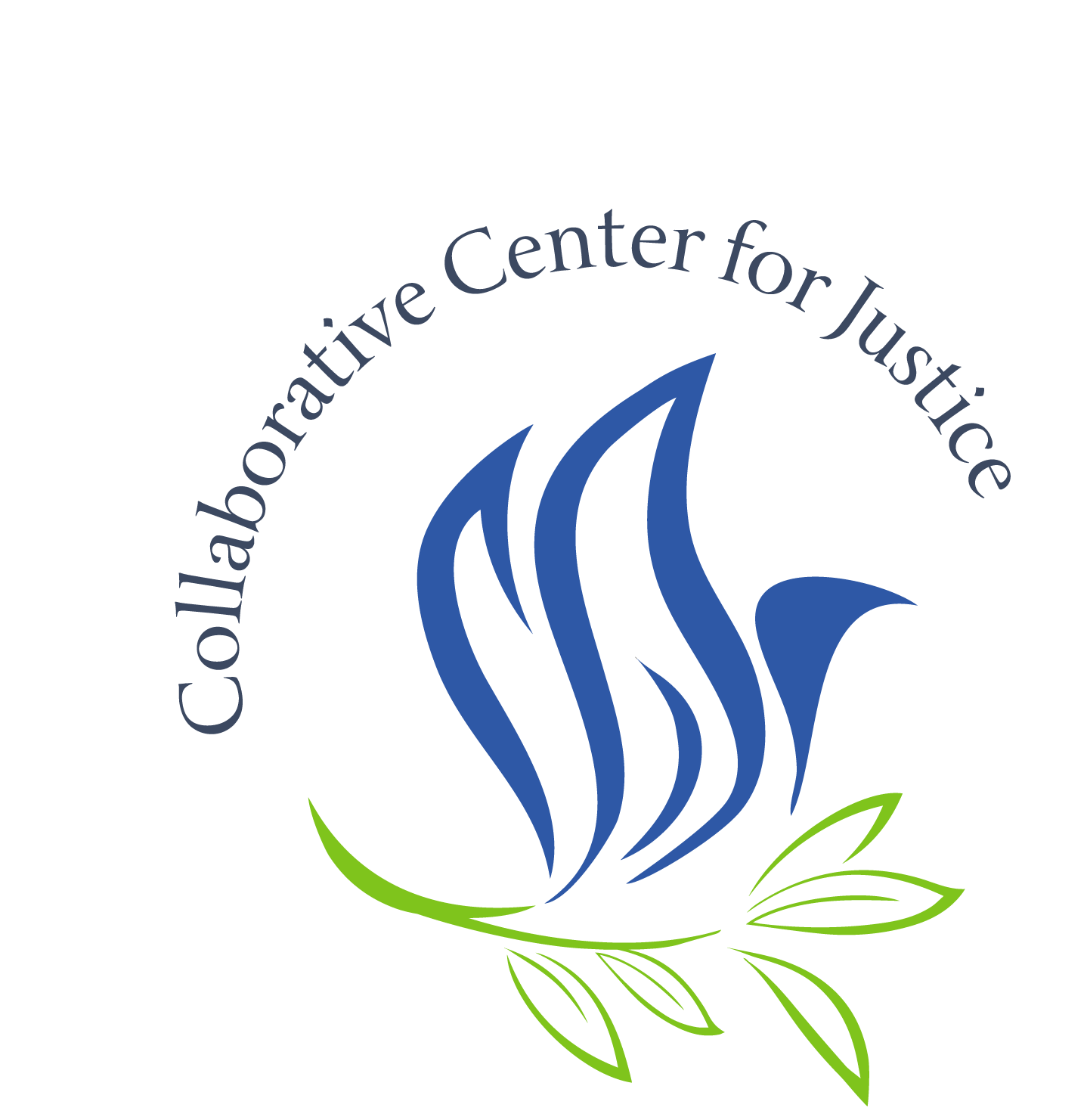Click here to read S.B 392
Click here to read S.B 387
Written Testimony Submitted to the Connecticut General Assembly Judiciary Committee in
support of S.B. 392 and S.B. 387 with the recommendations submitted by the Connecticut
Justice Alliance, and in opposition to S.B. 365, S.B. 388, H.B. 5418, H.B. 5417, S.B. 386, and
S.B. 16.
March 29, 2022
To the Honorable Co-Chairs Senator Winfield and Representative Stafstrom, Vice Chairs,
Ranking Members, and distinguished members of the Judiciary Committee:
We write from the Collaborative Center for Justice, a Catholic social justice advocacy
organization, primarily sponsored by six Congregations of Women Religious across the state.
Our mission includes working for systemic change and advocating for policies that improve the
lives of low-income and other marginalized people.
The Collaborative Center is a founding member of the Greater Hartford Interfaith Action
Alliance (GHIAA), and we have worked hard with this group and other advocates to support
criminal justice reforms such as the clean slate legislation last session. We are concerned that
many of the bills raised in the Judiciary Committee this legislative session would have harmful
impacts on young people, particularly Black and brown children, across the state.
We are concerned that many of these proposals included in the bills we oppose are arising out of
a place of unfounded fear that has arisen from misinformation about the current level of crime in
the state.
We reject any legislation that does the following:
• Promotes vigilantism among citizens. Any bill with an emphasis on empowering
residents to prevent unlawful entry positions them in far too active a role. The murders of
Trayvon Martin, and more recently, Ahmaud Arbery, are examples of the dangers
inherent to citizens taking the law into their own hands.
• Lowers the age of transfer to adult court.
• That would allow for the electronic monitoring of a child who has been released to their
parent or guardian. GPS monitoring is a financially costly and ineffective strategy for
reducing crime or addressing the needs of the child.
• That would allow the indefinite holding of a child in police custody.
We instead urge lawmakers to focus time and resources on addressing many of the true needs of
children and youth in the state, including increasing access to: mental health treatment and
support; paid job training and employment opportunities; sports, recreation, and other
extracurricular activities; and affordable housing.
The place of the child is in the community, and the community’s institutions are the most
appropriate and effective vehicles for the services children need: families, schools, religious
institutions, non-punitive government agencies, among others. Prisons and jails, on the other
hand, are harmful to youth development and desirable life outcomes. Youth held in detention,
even pretrial detention, often have worse outcomes than those who are not. One 2020 study
found that detention increased the rate of youth recidivism by 33% for felonies and 11% for
misdemeanors, respectively. It also found that, for lengthier stays, the rate of recidivism
increased 1% per day of detention.1
We write in support of:
S.B. 387: An Act Concerning the Recommendations of the Juvenile Justice Policy and Oversight
Committee
S.B. 392 An Act Concerning Statements Made by Juveniles.
We write in opposition to the following bills:
S.B. 388: An Act Concerning the Defense of a Person or a Person’s Dwelling, Place of Work or
Motor Vehicle
H.B. 5418: An Act Revising Juvenile and Criminal Justice Statutes and Insurance Statutes
Concerning Theft of a Motor Vehicle
H.B. 5417: An Act Concerning Juvenile Justice and Services and Firearms Background Checks
S.B. 386: An Act Concerning a Study of the Juvenile Delinquency Laws of This State
S.B. 365: An Act Concerning Juvenile and Criminal Justice Reforms
We are testifying in opposition to the bills we listed above because many of these proposed
changes are rooted in false claims that Connecticut is experiencing tremendously high rates of
crime being committed by youth. This is simply not supported by data. This crime rhetoric is
being used to cause fear and push for reforms that, in the end, will result in more Black and
Brown youth and low-income white youth becoming involved in the juvenile justice system.
Increased detention and incarceration will not provide children and youth the community
supports, treatment, or basic needs necessary to address many of the root issues youth are facing.
1 Sarah Cusworth Walker and Gerald R. Herting. “The Impact of Pretrial Juvenile Detention on 12-Month
Recidivism: A Matched Comparison Study.”
https://journals.sagepub.com/doi/full/10.1177/0011128720926115#:~:text=Using%20propensity%20score%20ma
tching%2C%20analyses,%25%20increased%20risk%20per%20day).
The majority of the proposals included in the bills we oppose will not provide a real solution for
the issues related to crime in our state.
We urge you to SUPPORT S.B. 392 and S.B. 387 with the recommendations submitted by the
Connecticut Justice Alliance, and to OPPOSE S.B. 365, S.B. 388, H.B. 5418, H.B. 5417, S.B.
386, and S.B. 16.
Thank you for the opportunity to submit testimony on these bills.
Respectfully submitted,
Dwayne David Paul, Director
Rachel Lea Scott, Associate Director



